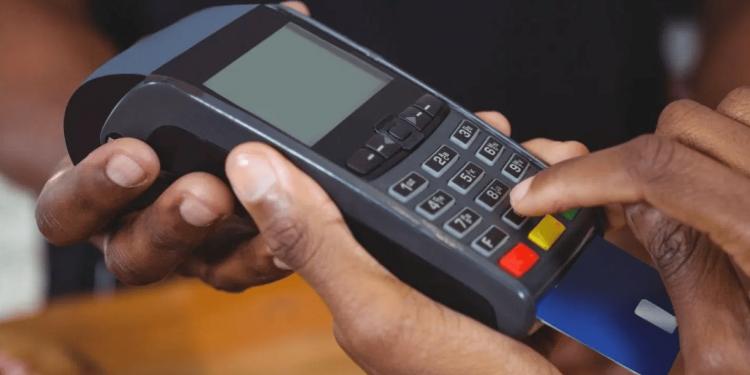Point-of-Sale operators across Nigeria have raised serious concerns over the Central Bank of Nigeria’s new agent banking regulations, warning that the policy could push smaller fintech companies out of the market, stifle competition, and threaten millions of livelihoods dependent on the PoS business ecosystem.
Under the new guidelines, PoS agents will be required to operate exclusively under a single financial institution or super-agent, meaning they will no longer be permitted to offer services across multiple platforms such as PalmPay, OPay, and Moniepoint. The Association of Mobile Money and Bank Agents in Nigeria (AMMBAN) has strongly opposed this shift, insisting that it undermines one of the most dynamic segments of Nigeria’s informal economy.
Speaking on behalf of the association, its National President said the exclusivity requirement could alter the competitive landscape of the industry and force thousands of agents to abandon smaller fintech partners for dominant players. He noted that out of approximately 200 licensed service providers in Nigeria, just five already control nearly 70 percent of the market, adding that making exclusivity mandatory would entrench their power even further.
He stressed that the ability of agents to switch between platforms has been a unique feature of the PoS model, allowing business continuity and customer service reliability when one network experiences downtime. According to him, more than 1.9 million PoS agents currently operate nationwide, many of whom depend on the flexibility to serve customers through multiple terminals. Removing that flexibility, he warned, could force agents to drop devices associated with smaller fintechs, ultimately driving them out of business.
Industry stakeholders fear that this policy could trigger divestment and job losses, as many fintechs may no longer be able to sustain their agent networks if the rule is enforced. Another operator within the ecosystem noted that forcing agents to choose a single principal would diminish competition, reduce service availability, and weaken Nigeria’s cashless payment infrastructure, which has become critical to financial inclusion in both urban and rural areas.
Beyond exclusivity, PoS agents are also troubled by new operational conditions introduced under the framework, including stricter branding requirements and restrictions on co-located businesses. Agents are now expected to operate from branded kiosks affiliated with their chosen institution and are discouraged from running additional businesses at the same location. AMMBAN argued that these conditions are impractical, noting that many agents rely on supplemental income from petty trading to meet daily loan repayments and household expenses. Requiring them to operate only PoS transactions could erode their ability to survive.
The association criticised the Central Bank’s approach, suggesting that the policy was drafted without sufficient input from field operators. They argued that regulating an informal and highly decentralised sector from a policy desk risks overlooking real-world operational challenges faced by small agents and micro-businesses.
This latest regulatory shift follows the CBN’s earlier directive on geo-tagging PoS terminals, which mandated the use of ISO 20022 messaging standards and required devices to support geolocation and geofencing. Under that rule, terminals must operate within a 10-metre radius of their registered business address, with non-compliant devices facing deactivation. Initially due for enforcement in October 2025, the deadline has now been extended to April 1, 2026, due to the scale of implementation involving more than 8.3 million registered PoS terminals, of which 5.9 million were already deployed as of March 2025.
In a circular issued by the Director of Payments System Policy, the CBN outlined additional compliance measures, including the requirement that all agent transactions be carried out through a dedicated account or wallet controlled by the principal institution. Agents found using unauthorised accounts will face sanctions, while those involved in misconduct or fraud risk blacklisting.
The framework also limits individual customer transactions to a daily ceiling of ₦100,000 and reinforces the rule that devices must be geo-fenced to prevent mobile use outside approved locations. The CBN has set April 1, 2026, as the official start date for enforcing location and exclusivity rules.
As regulatory pressure intensifies, stakeholders warn that without careful revision, the policies could destabilise a sector that has become central to Nigeria’s financial inclusion drive and a major source of employment. For millions of small operators and MSMEs that rely on PoS services, the policy outcome could decide the future balance between innovation, regulation, and economic survival.










